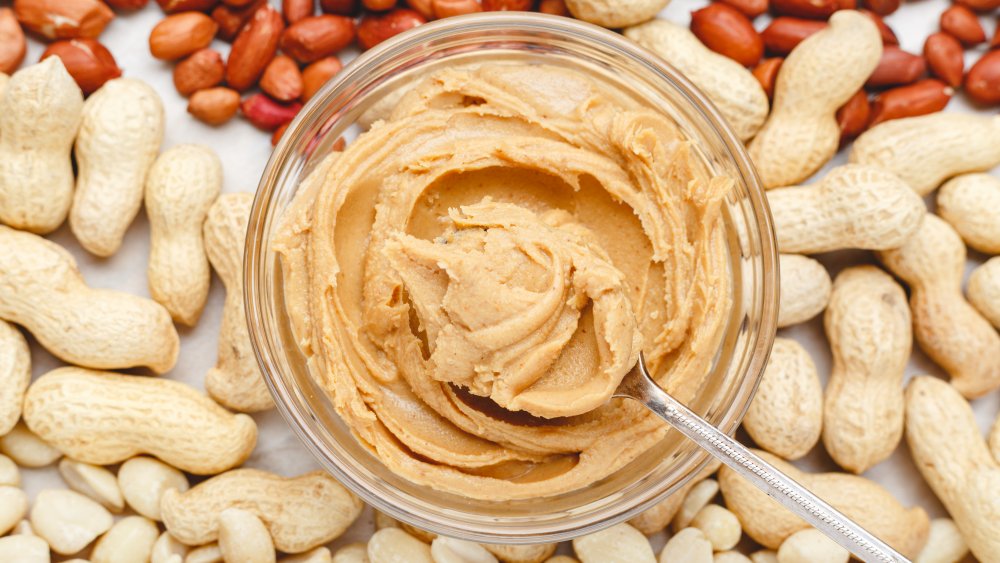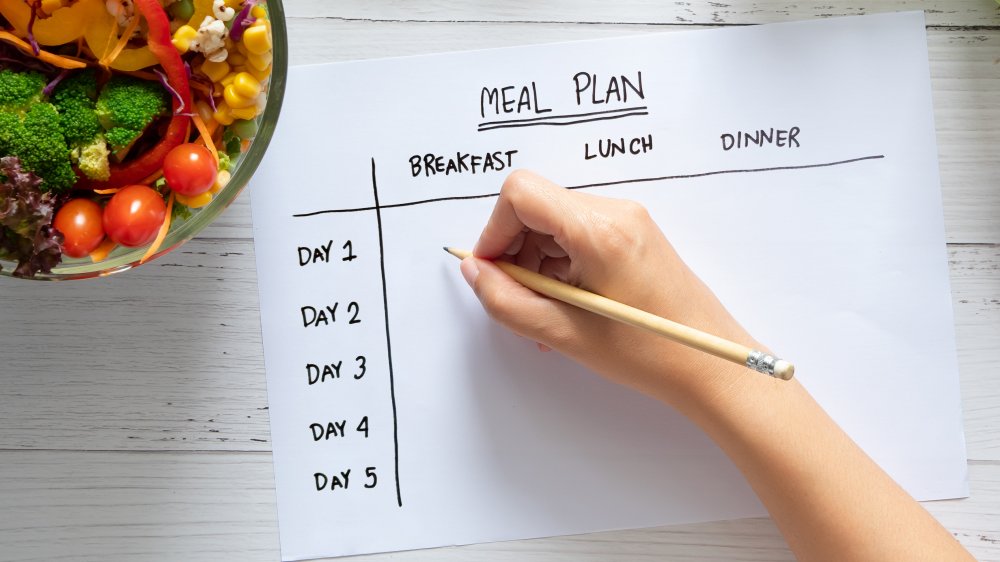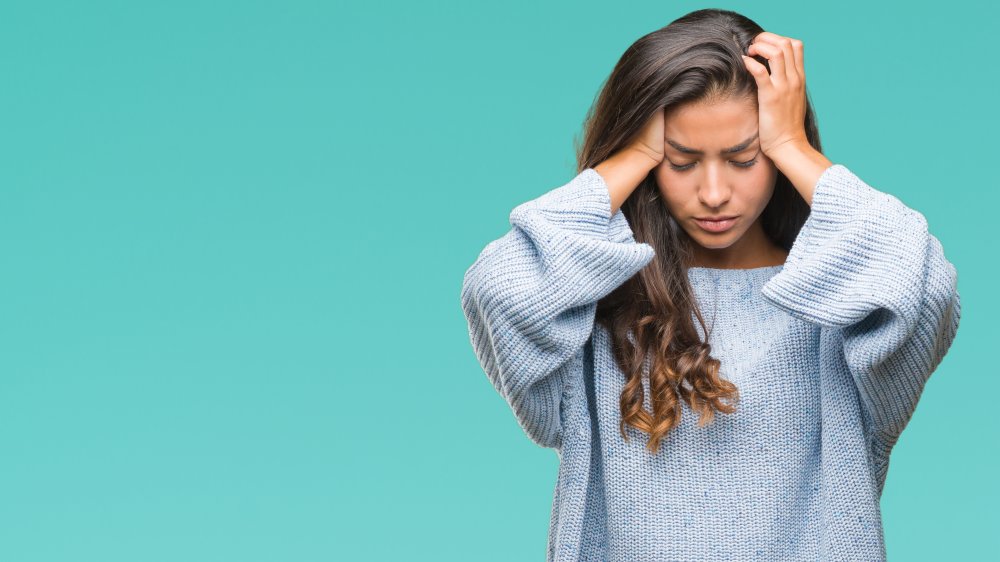What Your Peanut Butter Craving Really Means
Picture it – you're standing in the kitchen eating peanut butter by the spoonful right out of the jar. We've all been there. That undeniable craving for the creamy peanut buttery delicacy that hits all the sweet and salty notes that make your tastebuds sing. After the craving passes, however, you're left thirsty for milk and 600 calories heavier than you wanted to be for the day.
Thankfully, peanut butter is good for you. Loaded with monounsaturated fat and protein, it's a great snack that can keep hunger at bay, but as registered dietitian Ilyse Schapiro told Eat This, Not That, you should try to "always consume it in moderation." She went on to advise, "A good serving size is two tablespoons."
The problem is, when a peanut butter craving really hits, two tablespoons just won't cut it! Instead of fighting the temptation or, worse, cutting it out of your diet completely, you're better off figuring out why you have the uncontrollable cravings, to begin with. That way, you can understand them and fight them off before they even start. Here's what your peanut butter cravings are really trying to tell you.
You are craving peanut butter because you are on a low-fat or low-carb diet
Low-fat and no-fat diets were all the rage in the '80s, and it took decades for health-conscious consumers to realize that fat isn't only important for your health and satiety, but it's necessary to combat the high sugar alternatives that made their way into processed foods and "healthy" foods of the day (via PBS).
Thankfully, we have since learned that it's more important to discern between the type of fat you eat rather than the amount of fat you eat – specifically monounsaturated fats like the kinds found in olive oil and peanut butter, and polyunsaturated fats like those founds in fish like salmon. When you aren't getting enough healthy fats in your diet, your body will start craving those fats, and peanut butter is a great way to do just that (via Healthline). Unfortunately, the texture of peanut butter makes it incredibly easy to overindulge in. As Dietitian Dawn Jackson Blatner explained to HuffPost, "Things that are creamy without much chewing needed aren't as filling as foods that have more chewing involved."
The same can be said for low-carb diets. Since low-sugar varieties of peanut butter are permitted on many carb-restricted plans, that slight sweetness satisfies your body's carbohydrate cravings. That means when you want something sugary, your brain will immediately go to peanut butter for satisfaction (via Healthline).
You are craving peanut butter because you are stressed
While stress is a normal part of life, unmanaged stress is extremely unhealthy. Weight gain is often associated with high levels of the stress hormone cortisol in the body. Cortisol not only causes food cravings, but, according to a 2012 study out of Harvard, the stress hormone causes the body to crave foods that are "high in fat, sugar, or both." Peanut butter can certainly check those boxes, but even more so, the decadent treat also contains the phytonutrient, beta-sitosterol, which a small 2016 study published in PubMed found can actually alleviate those feelings of anxiety associated with stress and can reduce the levels of cortisol in the body. That means your body is craving peanut butter as a way to medicate itself against the negative effects of cortisol.
While it may seem like there is no solution to food cravings caused by the body's cortisol levels, managing stress is possible with consistent lifestyle changes. According to the Mayo Clinic, there are many ways to naturally reduce stress and lower cortisol levels without sabotaging your diet including, exercise, meditation, yoga, journaling, and even just connecting and socializing with friends and loved ones.


